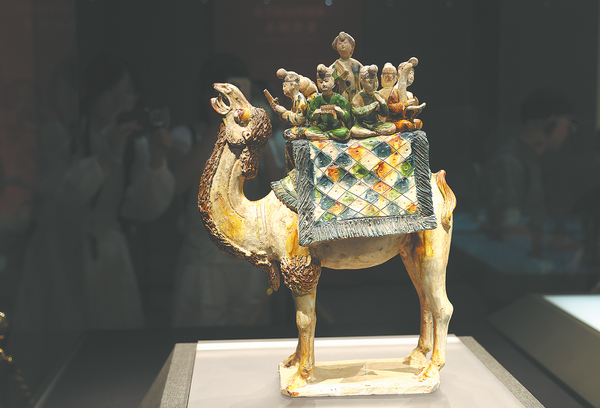

Similar techniques were also seen to shape Xi'an's Terracotta Warriors during China's Qin Dynasty (221-206 BC). Today, armies of tourists from around the globe march to Xi'an to see these world wonders.
And other echoes of the metropolis' Silk Road legacy remain, panelists agree.
Gilbank hails a tourism industry that celebrates the "golden age" of the Tang Dynasty (618-907).
"Every day, if you go … on the city streets or on the metro, you will almost always see young women dressed in that (period's) style," Gilbank says.
Festa says Xi'an continues to blend the old and new.
"You have the opportunity to eat very traditional food," she says. "But at the same time, you also feel the new, the rush of modern life."
Xi says he's happy to have moved from Central China to the northwestern metropolis.
"It witnesses the multi-civilizational exchanges of the human world," he says. "But it also witnesses the Silk Road spirit, which is peace and cooperation, openness and inclusiveness, mutual learning and mutual benefit. So, I love Xi'an."
Contact the writer at erik_nilsson@chinadaily.com.cn